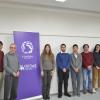Background: The intention of this workshop is to address the topic from multi-disciplinary perspectives, including, but not limited to, approaches based in hazards engineering and planning, social and environmental sciences and policy, sociology and social work, public health and emergency medicine, computational modelling and economics.
Modern disasters tend to have domino effects: natural emergencies can develop into anthropogenic crises and the network structure of the economy means that post-crisis equilibria are rarely stable. This tight inter-connectivity of disaster situations is fertile ground for new exploration in terms of theory, methods and empirics of disaster science. In terms of theory, cascading disasters call for use of non-linear models, complex and adaptive systems to tackle to the challenges of disasters with reciprocal and feedback loops. In terms of methods, cascading disasters call for approaches that distinguish between direct and indirect effects, first order and second order influences, identification and causality. In terms of empirics; recent disasters have generated multiple opportunities for studying the domino effects of disasters ranging from the 2011 Great East Japan tsunmai and Fukoshima disaster, through the Icelandic volcanic ash crises that affected Europe in 2010, and on to Superstorm Sandy (2012).
Workshop program attached.
| cascading_disasters_workshop_program.pdf | 795 KB |



